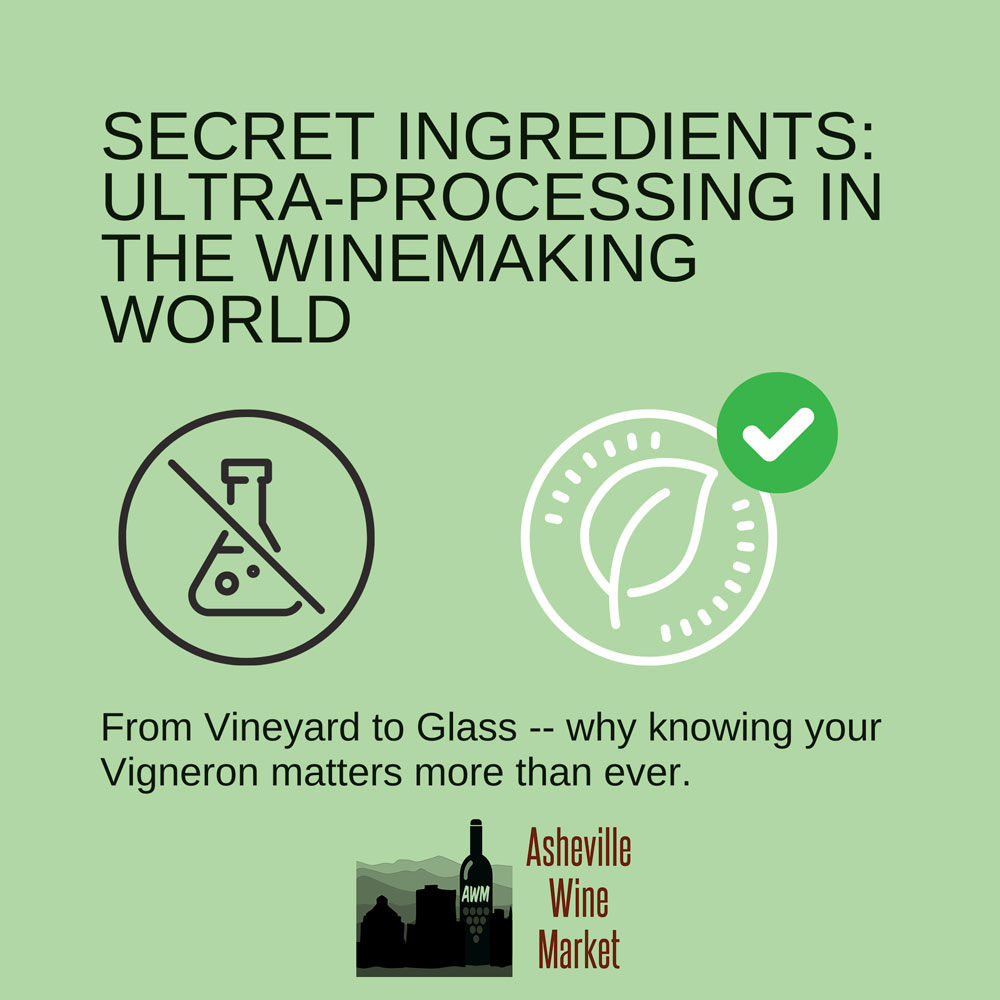
An article about ultra-processed foods recently popped up in my morning Washington Post news feed. I’m not entirely sure when “processed foods” transitioned to “ultra-processed foods.” I feel like that kid in the back of the class, folding paper airplanes, chatting with neighboring classmates, not paying attention to what the teacher says will be on the exam. After reading that article, it got me thinking about how this most certainly related to our favorite adult beverage.
Ultra-processed foods have weaseled their way into becoming a significant part of the modern American diet. This insidious cocktail of food-like compounds is characterized by their high levels of processing, stripping them clean of nutritional value while enhancing flavor, texture, and shelf life through artificial additives, preservatives, and other chemical voodoo.
These foods typically include snacks, sugary drinks, instant meals, and many other food-like entities found in the global food market’s convenience segment. The consumption of ultra-processed foods has been linked to various health issues, including obesity, heart disease, diabetes, and numerous other chronic conditions. The elevated content of unhealthy fats, sugars, salt, and chemical additives all add up to depressingly low nutritional density.
In the wine industry, the equivalent of ultra-processed foods is the mass production of wines that undergo extensive manipulation and intervention during winemaking. Industry-accepted practices include synthetic chemicals to control fermentation, adjust flavor, enhance color, and stabilize the wine, or techniques like reverse osmosis to concentrate flavors or remove excessive alcohol.
These wines are intentionally created to provide a consistent, predictable beverage designed to appeal to a wide audience while delivering a long, extended shelf life, similar to ultra-processed foods. Of course, this level of manipulation detracts from the natural qualities and complexity that makes wine unique, inevitably resulting in an insipid tipple, completely lacking authenticity and entirely devoid of any expression of terroir.
The concerns surrounding ultra-processed foods and their impact on health have a parallel in the wine industry, where over-manipulation should undoubtedly raise questions about their impact on wine’s natural benefits. Traditionally, wine has been lauded for its health benefits when consumed in moderation, notably its antioxidant properties and role in the Mediterranean diet, which has long been associated with longevity and reduced risk of heart disease. The rub here is that these benefits are primarily based on wines that are produced in a more natural and far less processed manner. The excessive processing and addition of synthetic chemicals in some modern winemaking practices might undermine these health benefits, making these wines close cousins to ultra-processed foods when it comes to their impact on our health and well-being.
The movement towards natural wine aims to counteract the trend of over-processed wines by emphasizing minimal intervention in the winemaking process. Naturally made wines are made from organically or biodynamically grown grapes, free of added synthetic chemicals, and with little to no adjustment during fermentation and aging. This approach allows the wine to reflect its origin, the grape’s honest characteristics, and the winemaker’s unique signature, offering a more authentic experience by reducing reliance on chemical additives and processing techniques. Natural, ethically made wines endeavor to preserve the inherent health benefits of wine, similar to how whole foods offer nutritional advantages over ultra-processed alternatives.
When you purchase wine made naturally by vignerons with integrity instead of wine made by folks in lab coats, that purchase extends well beyond health considerations. It also encompasses environmental sustainability, support for small-scale producers, and the preservation of cultural and regional winemaking history and traditions. Natural winemaking practices emphasize organic farming, reducing the use of harmful pesticides and fertilizers, contributing to biodiversity and soil health. By choosing natural wines, wine lovers support a more sustainable and ethical wine industry that prioritizes environmental stewardship ensuring the well-being of future generations.
Wine crafted naturally and with integrity creates a stronger bond to the location and the people producing it. Unlike mass-produced wines, that blur the distinctions between different regions and styles, naturally made wines celebrate the diversity and uniqueness of their origins. This connection helps foster a greater appreciation for the craftsmanship involved in winemaking, encouraging wine lovers to become more engaged and informed about the wines they drink and the stories they tell.
It is crucial to understand that not all wines produced using modern methods are inherently evil; likewise, not all naturally made wines are automatically superior. For me, the key lies in transparency, ethical production practices, and the purposeful intention behind the viticultural techniques and during the winemaking process. When shopping in a dedicated wine shop instead of the supermarket or big box stores, wine lovers can peruse a selection of cleanly-made wine from producers who both grow the grapes and make the wine. These ethically driven vignerons are committed to quality, sustainability, and authenticity, whether they are making wine in traditional or innovative ways.
Just as the rise of ultra-processed foods has prompted a reevaluation and revamping of our dietary choices, the flood of overly manipulated wines into supermarkets and big-box stores calls for a similar scrutiny when choosing our favorite adult beverage. Embracing wine made naturally and with integrity is not only a matter of health but also an ethical and environmental choice that supports sustainable practices and preserves the cultural heritage of winemaking. By choosing wines that are produced responsibly, all wine lovers can enjoy the unique qualities and benefits of wine in its most authentic form.
